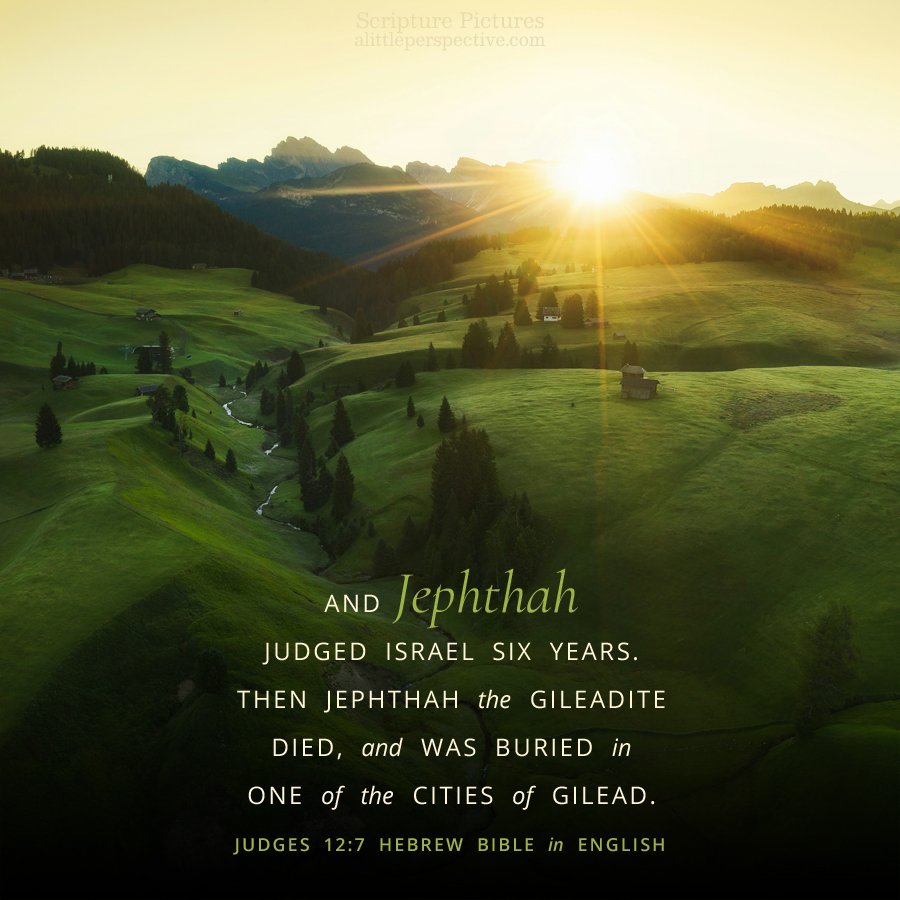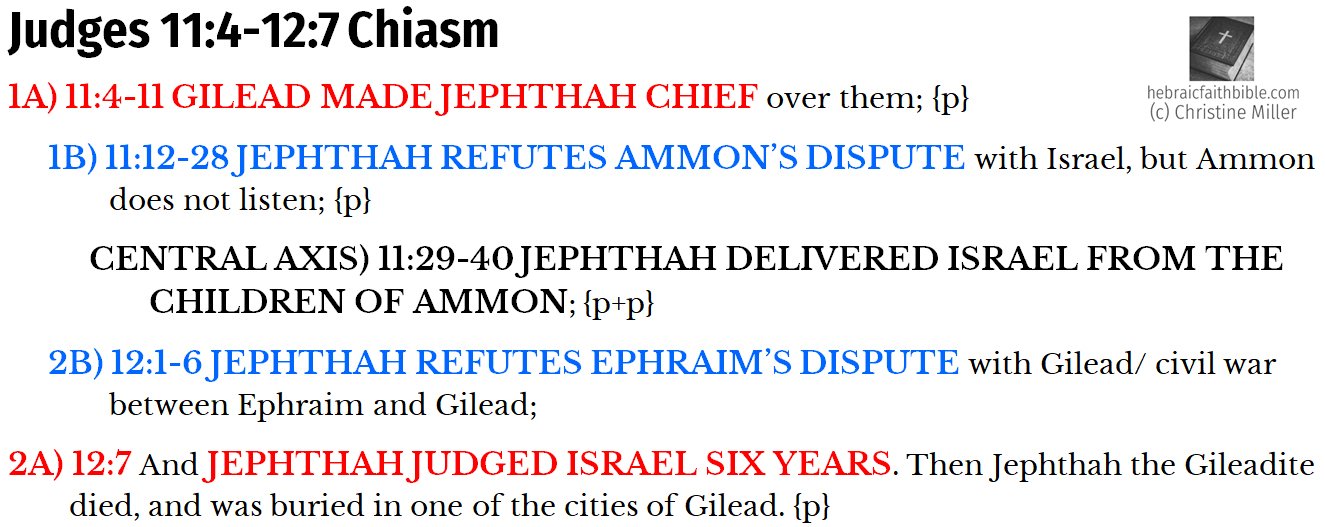Read Judges 12 here (text coming …) or at Bible Gateway.
The Hebrew paragraphs:
12:1-7 {p} Civil war between Ephraim and Gilead
12:8-10 {p} Ibzan of Bethlehem judged Israel 7 years
12:11-12 {p} Elon of Zebulun judged Israel 10 years
12:13-15 {p} Abdon of Ephraim judged Israel 8 years
Judges 11:4-12:7 Chiastic Structure:
To judge is Strong’s H8199 שפט shaphat, a primitive verb meaning “to pronounce sentence.” The ancient pictographs are shin + pey + tet.
shin ש = two front teeth, thus sharp, press, eat, two, again
pey פ ,ף = the mouth, thus open, blow, scatter, edge
tet ט = the basket, thus surround, contain, hold, mud
The parable being told by the Hebrew Root Word is of pronouncing a word (shin, as spoken words pass through the teeth) with the mouth (pey); i.e., to make a decree, a proclamation, that holds (tet, as a basket holds whatever it contains) i.e., that passes the scrutiny of time and circumstances as a true word.
Today we have judges pronouncing sentences that are then overturned as unconstitutional or even unjust by higher courts. Their decrees did not hold, and did not pass the scrutiny of time and circumstances. They are judges making false judgments. They wear the robes and draw the salary, but their judgment is not just. I believe every judge who pronounces a sentence which does not hold, should be replaced by judges who pronounce sentences that do hold. Then every judge will be careful to research their decree, to ensure that it is just.


















Leave a Reply